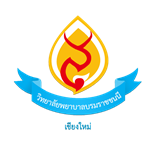Publication Ethics
Committee on Publication Ethics (COPE)
The Journal of Nursing and Public Health Research (JNPHR) is preparing to publish research papers, academic papers, and review articles. In this regard, the journal should be aware of the publishing ethics of authors, reviewers, and editors to ensure that the dissemination is correct and of standardized quality and transparency in accordance with national and internationally recognized publication standards. The journal used the Thai Journal Citation Index Center's translation of http://www.publicationethics.org/files/2008-Code-of-Conduct.pdf to describe the roles of each function.
Editor roles and responsibilities
The editors are responsible for everything published in the journal of nursing and public health research, with duties and responsibilities as follows:
- Consider, screen, and review articles submitted for publication based on academic principles or research methods, as well as how they fit into the journal's field.
- Encourage the authors to revise their work before submitting it for peer review.
- Consider selecting peer reviewers who are experts in the field of content in the article.
- Check the article reviewer's recommendations and make any necessary changes.
- Consider and decide when the article reviewers' comments differ or when articles do not change in response to the reviewers' recommendations.
- Corrections and suggestions for errors in article writing.
- Create quality journal standards at each stage of the publishing process.
- Maintain confidentially of author and reviewer information and documents.
- If one of the reviewers rejects the article for publication, the editor will send it to a third reviewer to be evaluated, and if two out of three reviews agree to accept the article for publication, the article will be published.
- Regularly and timely distribute high-quality, standardized articles to readers.
- Inform the authors of the results of consideration, screening, and reviewing of articles submitted for publication based on academic principles or research methodologies.
- Inform the authors of the decision in case the reviewers disagree with each other.
- Inform authors of the editors' decision to accept or reject an article for publication based on academic correctness, importance, novelty, and clarity of the research article, as well as its relevance to the journal's scope.
- Listen to the author's complaints and suggestions in case they disagree with the editor's decision.
- Consider experts in the field of the article fairly. The author will not know the reviewer's name, and the reviewer will not know the author's name (Double Blind).
- Post writing instructions, formatting guidelines, article submission rules, and the process for submitting articles for reviewers on the journal's website.
- Provide advice and coordination between the authors and the reviewers in the event of academic disagreements or differences of opinion.
Author roles and responsibilities
- Prepare and submit an article following the formatting and guidelines of the journal.
- Revise articles in response to editor and reviewer suggestions and comments. If the proposed issue is not corrected, the author may explain why to the journal.
- The author's article will be checked for plagiarism using the ThaiJO system. If the percentage of duplicity is more than 20 percent, the author must clarify and correct.
- Authors should submit a revised article through the ThaiJO system on time.
- Authors should review the article before submitting it to the ThaiJO system. If there is an error, the journal will not edit the article that has been submitted through the ThaiJO system.
- Research articles must be approved by the research ethics committees.
- Authors must search for data in the scientific evidence database.
- Authors must not submit articles to other journals while it is being published.
- Authors must not copy other people's works as their own.
Reviewer roles and responsibilities
- Reviewers must evaluate articles through the ThaiJO system.
- Reviewers are responsible for ensuring that the article is accurate in accordance with the research methodology. Academic principles take priority over publishing style and proofreading.
- Reviewers will not identify themselves with authors based on the double-blind principle.
- Reviewers will not demand benefits from the authors.
- Reviewers must evaluate articles fairly and in accordance with academic principles.
- If one of the reviewers rejects the article for publication, the editor will send it to a third reviewer for evaluation, and the article will be published if two out of three reviewers agree to accept it for publication.
- Reviewers are not permitted to coordinate with or contact authors directly. However, if author consultation is required, the editor must serve as the coordinator.
- The decision to publish the article is the right of the editor.
- Reviewers can suggest citations or sources that are up-to-date and reliable.








